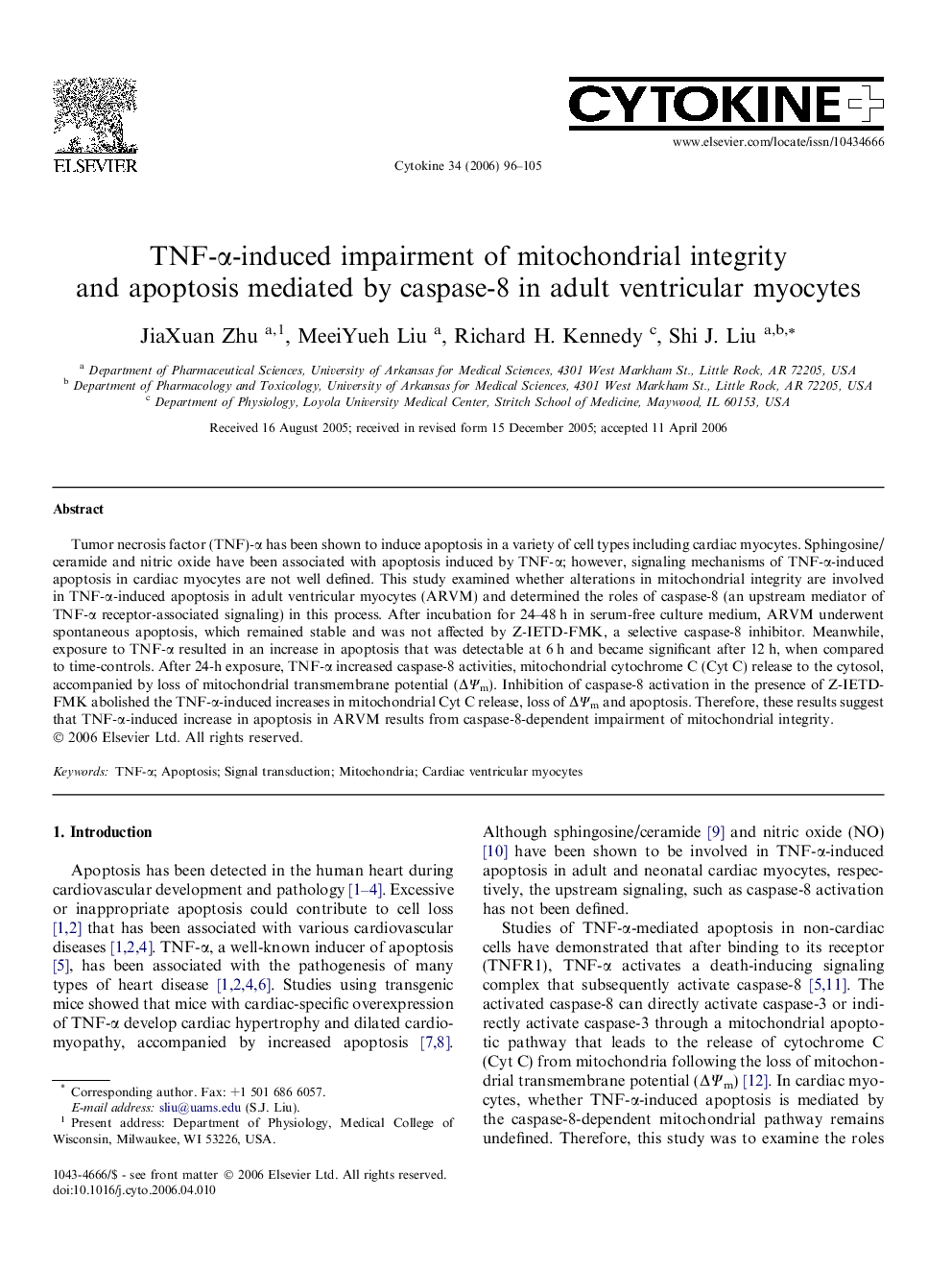| Article ID | Journal | Published Year | Pages | File Type |
|---|---|---|---|---|
| 2796101 | Cytokine | 2006 | 10 Pages |
Tumor necrosis factor (TNF)-α has been shown to induce apoptosis in a variety of cell types including cardiac myocytes. Sphingosine/ceramide and nitric oxide have been associated with apoptosis induced by TNF-α; however, signaling mechanisms of TNF-α-induced apoptosis in cardiac myocytes are not well defined. This study examined whether alterations in mitochondrial integrity are involved in TNF-α-induced apoptosis in adult ventricular myocytes (ARVM) and determined the roles of caspase-8 (an upstream mediator of TNF-α receptor-associated signaling) in this process. After incubation for 24–48 h in serum-free culture medium, ARVM underwent spontaneous apoptosis, which remained stable and was not affected by Z-IETD-FMK, a selective caspase-8 inhibitor. Meanwhile, exposure to TNF-α resulted in an increase in apoptosis that was detectable at 6 h and became significant after 12 h, when compared to time-controls. After 24-h exposure, TNF-α increased caspase-8 activities, mitochondrial cytochrome C (Cyt C) release to the cytosol, accompanied by loss of mitochondrial transmembrane potential (ΔΨm). Inhibition of caspase-8 activation in the presence of Z-IETD-FMK abolished the TNF-α-induced increases in mitochondrial Cyt C release, loss of ΔΨm and apoptosis. Therefore, these results suggest that TNF-α-induced increase in apoptosis in ARVM results from caspase-8-dependent impairment of mitochondrial integrity.
